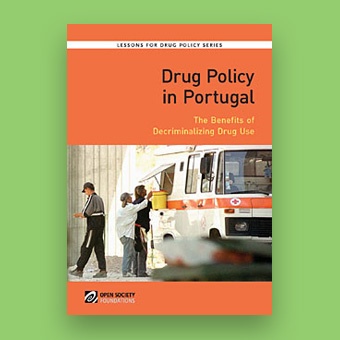In 2001, a small European country, Portugal, took a brave step, changing its drug policies and refocussing its efforts away from arresting and criminalising drug users, towards smart public health interventions. How did the political establishment of a Catholic-Conservative country come to such an agreement about decriminalization? How does the system work? Is it effective? Ten years after decriminalization, the HCLU film crew travelled to Lisbon and Porto to get answers to these questions – and now you can learn them from our latest movie, produced in cooperation with APDES - an NGO partner in our European Drug Policy Initiative. The film tells the story of decriminalization from various perspectives, through the eyes of people involved in its formation, implementation and evaluation.
You can turn on English subtitles by starting the movie and clicking on the "cc" button at the bottom of the window!
We recommend you to read the report of the Open Society Foundation on the same issue, please click on the picture below: Contrary to the expectations of the new law’s critics, drug use did not skyrocket in the years following decriminalization – actually it stabilized or declined among young people, in accordance with the patterns and trends of other European countries.
Contrary to the expectations of the new law’s critics, drug use did not skyrocket in the years following decriminalization – actually it stabilized or declined among young people, in accordance with the patterns and trends of other European countries.
What is even more important, there was a significant reduction in drug-related deaths and disease, not to mention financial and human resource savings for the law enforcement bodies. Prior to decriminalisation, Portugal was a Catholic-Conservative country with a short history of democracy, the prevalence of injecting drug use was very high, as well as the rate of new HIV transmissions.
The Portuguese experience demonstrates that decriminalisation and harm reduction programs do not only work in rich countries with well-established democracies like Holland. In addition, the Portuguese decriminalisation model did not only abolish penalties against drug users but also created a diversion system: a commission made up of three people, a doctor, a social worker and a lawyer decides if the offender should be sanctioned or not. We can now see that this model serves as an effective social filter of problematic and non-problematic drug use.
Posted by Peter Sarosi